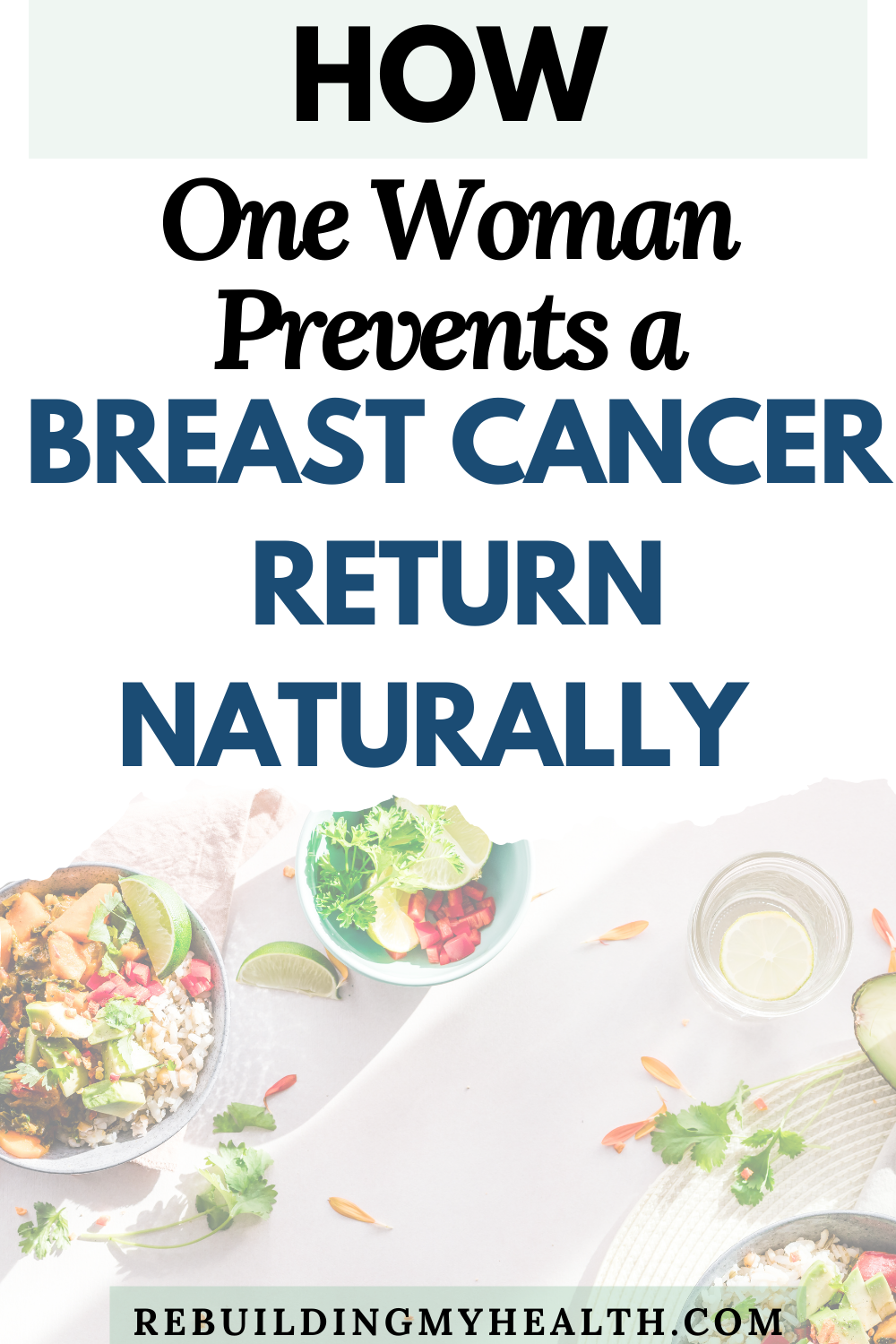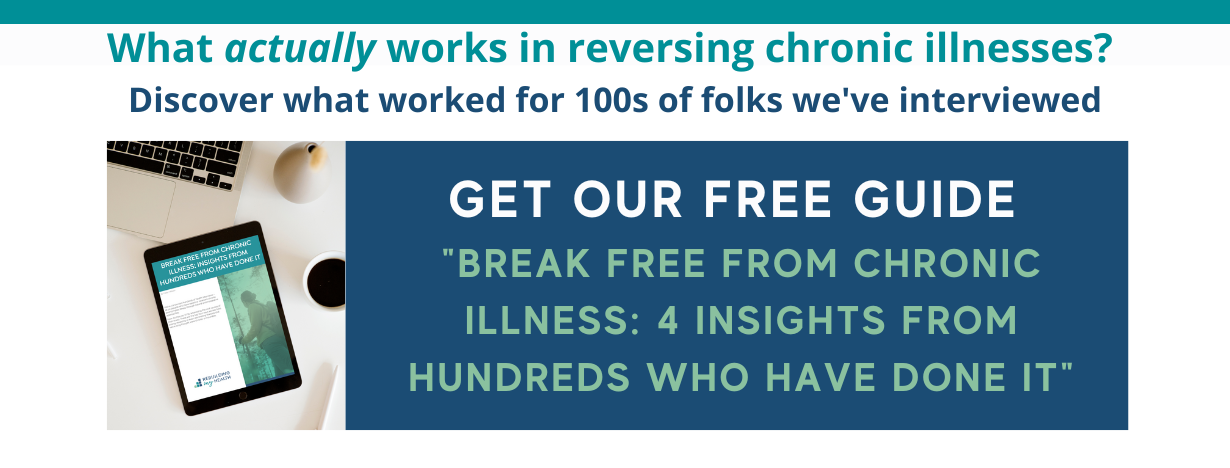7 Ways a Breast Cancer Survivor Prevents a Return
“If I could say anything to anyone doing this kind of healing… if you don’t work on your emotional health, your body cannot heal.”
– Margo
Cancer had circled around Margo her entire life; her grandfather, father, mother and in-laws all fought that battle.
And while Margo’s own breast cancer diagnosis was not entirely surprising – her mother also had it – the news was devastating nevertheless.
Margo’s diagnosis came after an exceptionally stressful time. She and her husband had both been taking care of their ill parents. As she tended to everyone else, Margo neglected her own health.
At the same time, her son was serving in Afghanistan, intensifying the crucible of stress.
Looking back, Margo believes all this contributed to her developing breast cancer.
“Cancer is a symptom of a life out of balance,” she says. “My life was out of balance.”
Diagnosed with Invasive Ductal Carcinoma
Doctors had diagnosed Margo with stage-one invasive ductal carcinoma (IDC), the most common form of breast cancer, and advised her to proceed with a lumpectomy and radiation.
Margo ultimately only went through with the lumpectomy. With a front-row seat to her own family’s cancer care over decades, she was not impressed with the outcomes of conventional therapies.
She trusted that the lumpectomy had taken care of her cancer and began a follow-up schedule of exams and mammograms every six months.
Breast Cancer Round Two
After one of her regular check-ups, five years following her first cancer bout, Margo learned that it had returned. This time, the lump was in the other breast.
Again, she had a lumpectomy only. Following the surgery, doctors assured her that the tumor margins were clear and sent her on her way.
But this time, Margo worried about another relapse.
“The doctor said, ‘Go have a nice life,’” she recalls. “I was thinking, ‘Wait a minute. I have cancer and I want to know why.’”
Her subsequent research included non-conventional approaches, which she admits she had never considered before. However, she knew she needed to be more aggressive in preventing another return.
Watching the documentary, The Truth About Cancer, she learned about Dr. Veronique Desaulniers. Called Dr. V, she successfully healed her own breast cancer naturally and went on to write a book about her experience, Heal Breast Cancer Naturally.
But the regimen that Dr. V followed seemed exceptionally tough, Margo thought.
“I looked at everything Dr. V had done and thought, ‘There’s no way that I could do all this.’”
For help, she went to one of Dr. V’s retreats. There, Margo met Dr. V face-to-face, plus other women treating breast cancer naturally.
She learned more about Dr. V’s recommended seven essentials for bringing the body back into balance.
Seven Steps to Managing Breast Cancer
Following the retreat, Margo turned to Dr. V for coaching to help stick to the seven recommended steps:
- Diet changes – A keto diet is recommended to lower blood sugar. “Cancer is really a metabolic disease and the mitochondria are affected. Keeping the blood sugar lower keeps certain cancer pathways at bay,” says Dr. V.
- Reduced exposure to toxins – Margo lowered her daily exposure to toxins by choosing organic foods and non-toxic household products, as well as by detoxing.
- Energy balancing – Margo worked to balance her hormones and nervous system.
- Healing emotional wounds – For Margo, that meant reducing stress and negative emotions.
- Addressing dental infections – She had mercury dental amalgams replaced and an old root canal extracted.
- Using herbal supplements – She turned to supplements to help support her body’s healing and immune system.
- Embracing early detection – Instead of mammography, Margo began using thermography and blood testing to detect breast cancer years before tumors would be visible on other tests.
The Missing Link: Emotional Healing
With all that work, Margo’s labs improved steadily. But then, they seemed to plateau.
“Dr. V asked me how I was doing on essential number four, emotional healing,” she says. “I felt like I’d already been there and done that in my mid-60s. I had to be pushed.”
“The story is, I did all seven essentials, except for one, which was heal your emotional wounds,” she says. “It turns out to be the most important of them all. The head is connected to the body.”
At the time, Margo regularly meditated, but wasn’t feeling shifts in her health as a result.
She began reading more about emotional healing and came across Mary Morrissey of the Brave Thinking Institute. The information resonated and she decided to take a 12-week course on limiting beliefs.
In those three months, the course demanded that she take a hard look at herself. Ever so gradually, and imperceptibly, changes were happening.
Finally, her lab tests began moving in the right direction again, indicating a body in better balance.
“If I could say anything to anyone doing this kind of healing… if you don’t work on your emotional health, your body cannot heal,” Margo says.
Preventing a Relapse: An Ongoing Effort
With dedicated work, these days Margo shows no signs of cancer. Yet she’s careful not to use terms like “healed” because she feels keeping cancer at bay is an ongoing effort.
“It’s managed,” she says.
As for maintenance, Margo continues to eat organic, limit sugar and “white food,” and watch toxins going in and around her body. She also tests quarterly to ensure early detection.
For her, it’s a lifelong endeavor and she can’t ever let her guard down.
After more than a decade of ongoing cancer management, Margo has emerged a different woman. She knows a lot more about herself and started a new career as a certified life coach to help others do the same.
“I help transition women from a mindset of illness to wellness, from disease to aliveness,” she says.
If you enjoyed this story, you might also like: How a Florida Woman Healed Her Breast Cancer Naturally.
The information on this site is for educational and inspirational purposes only and is not intended to replace the advice of qualified professionals. Keep in mind that what works for one person may not work for another. Always consult your healthcare practitioners before beginning new approaches or treatments. Some links on Rebuilding My Health may be affiliate links. This means that we may receive a commission - with no additional cost to you - if you make any purchases using those affiliate links. Rebuilding My Health is a participant in the Amazon Services LLC Associates Program. Learn more.



